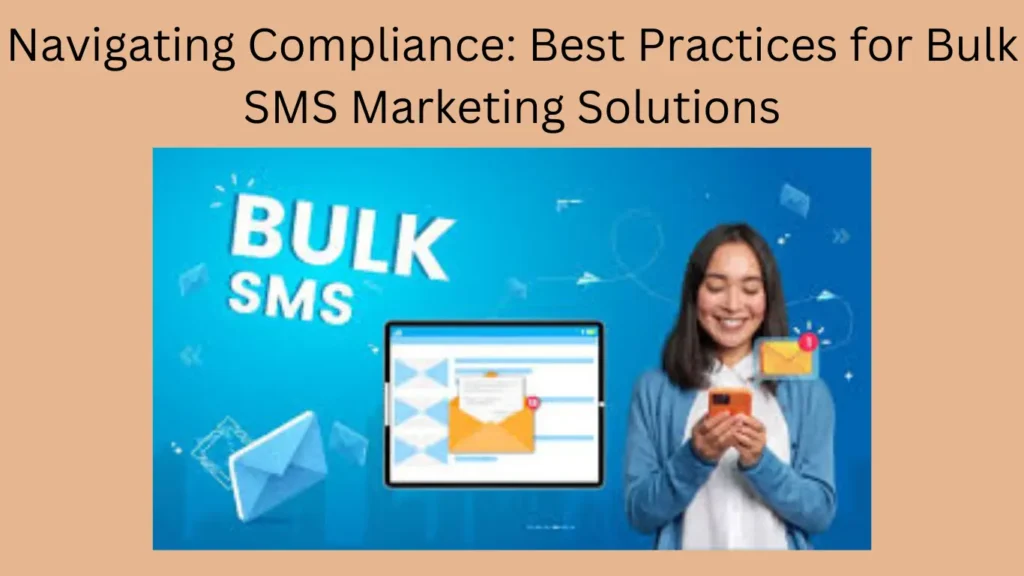Introduction
Bulk SMS marketing is an effective way to reach your audience, but it’s crucial to navigate the regulatory landscape carefully to ensure compliance and maintain trust. Non-compliance can lead to legal consequences, financial penalties, and damage to your brand’s reputation. This guide will provide best practices for maintaining compliance in your bulk SMS marketing efforts, focusing on creating helpful, reliable, and people-first content.
Understanding SMS Marketing Regulations
Before diving into best practices, it’s essential to understand the key regulations governing SMS marketing. These regulations can vary by country and region, but they generally cover the following areas:
- Consent: Obtaining explicit permission from recipients before sending marketing messages.
- Content Restrictions: Ensuring the content of your messages adheres to guidelines and avoids prohibited topics.
- Opt-Out Mechanism: Providing a clear and easy way for recipients to opt out of receiving messages.
- Message Frequency: Limiting the number of messages sent to avoid overwhelming recipients.
- Data Privacy: Protecting the personal information of recipients and complying with data protection laws.
Best Practices for Compliance in Bulk SMS Marketing
- Obtain Explicit Consent
- Permission-Based Marketing: Always obtain explicit consent from your recipients before adding them to your SMS marketing list. This can be done through online forms, in-store sign-ups, or other methods where the recipient actively opts in.
- Double Opt-In: Consider using a double opt-in process, where recipients confirm their subscription by replying to a confirmation message. This adds an extra layer of consent verification.
- Provide Clear Opt-Out Options
- Easy Opt-Out: Ensure that every message you send includes a clear and simple way for recipients to opt out. For example, include a message like “Reply STOP to unsubscribe.”
- Immediate Processing: Process opt-out requests immediately to avoid sending unwanted messages and to comply with regulations.
- Maintain Accurate Records
- Consent Documentation: Keep detailed records of when and how you obtained consent from each recipient. This can help in case of disputes or audits.
- Opt-Out Records: Track opt-out requests to ensure you do not accidentally send messages to those who have unsubscribed.
- Adhere to Content Guidelines
- Relevance and Value: Ensure your messages are relevant to your audience and provide value. Avoid sending spammy or irrelevant content that could lead to complaints or opt-outs.
- Compliance with Laws: Make sure your message content complies with local laws and regulations, avoiding prohibited topics and misleading information.
- Limit Message Frequency
- Respect Your Audience: Be mindful of how often you send messages. Too many messages can lead to annoyance and higher opt-out rates.
- Optimal Timing: Consider the timing of your messages to maximize engagement and avoid sending messages during inappropriate hours.
- Ensure Data Privacy and Security
- Data Protection: Implement robust security measures to protect the personal information of your recipients. This includes encrypting data, securing databases, and limiting access to authorized personnel.
- Compliance with Data Laws: Adhere to data protection laws such as the GDPR in Europe or the CCPA in California, ensuring you handle personal data responsibly and transparently.
- Regularly Review and Update Policies
- Stay Informed: Keep up to date with changes in regulations and industry best practices to ensure ongoing compliance.
- Audit and Improve: Regularly audit your SMS marketing practices and make improvements as needed to maintain compliance and enhance your campaigns.
Case Studies: Compliance in Action
- E-Commerce Retailer: An e-commerce retailer implemented a double opt-in process and saw a significant decrease in opt-out rates, indicating higher engagement and satisfaction among recipients.
- Financial Services: A financial services company ensured compliance by maintaining detailed consent records and providing clear opt-out instructions, resulting in fewer complaints and higher trust from their audience.
- Event Management: An event management company adhered to content guidelines and message frequency limits, leading to higher attendance rates and positive feedback from attendees.
Conclusion
Navigating compliance in bulk SMS marketing is essential for maintaining trust, avoiding legal issues, and ensuring the effectiveness of your campaigns. By obtaining explicit consent, providing clear opt-out options, adhering to content guidelines, limiting message frequency, ensuring data privacy, and regularly reviewing your policies, you can create helpful, reliable, and people-first content that resonates with your audience and drives positive results.
Implementing these best practices will not only keep you compliant but also enhance the overall success of your bulk SMS marketing efforts. Stay informed, stay compliant, and prioritize your audience’s needs and preferences to build lasting relationships and achieve your marketing goals.
For further Inquires Contact Us
FAQs
What is compliance in bulk SMS marketing?
Compliance in bulk SMS marketing involves following regulations and guidelines regarding consent, content, opt-out mechanisms, message frequency, and data privacy to avoid legal issues and maintain trust.
Why is obtaining consent important in SMS marketing?
Obtaining explicit consent is crucial to ensure recipients want to receive your messages. It helps build trust, reduces complaints, and is legally required in many regions.
How can I provide clear opt-out options in my SMS campaigns?
Include a simple opt-out instruction like “Reply STOP to unsubscribe” in every message. Process opt-out requests immediately to comply with regulations and avoid sending unwanted messages.
What content guidelines should I follow for SMS marketing?
Ensure your messages are relevant, valuable, and compliant with local laws. Avoid misleading information and prohibited topics, and always provide accurate and honest content.
How can I ensure data privacy in SMS marketing?
Implement robust security measures to protect personal data, such as encryption and restricted access. Comply with data protection laws like GDPR and CCPA to handle personal information responsibly.

